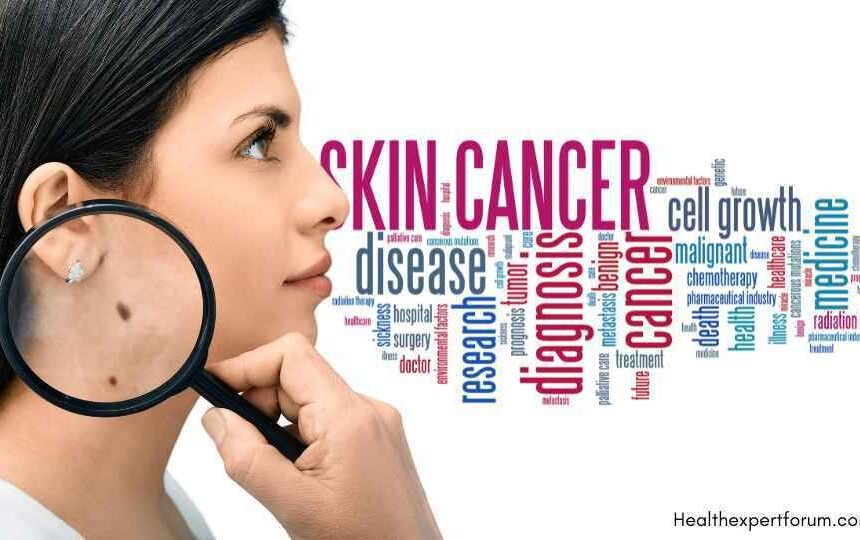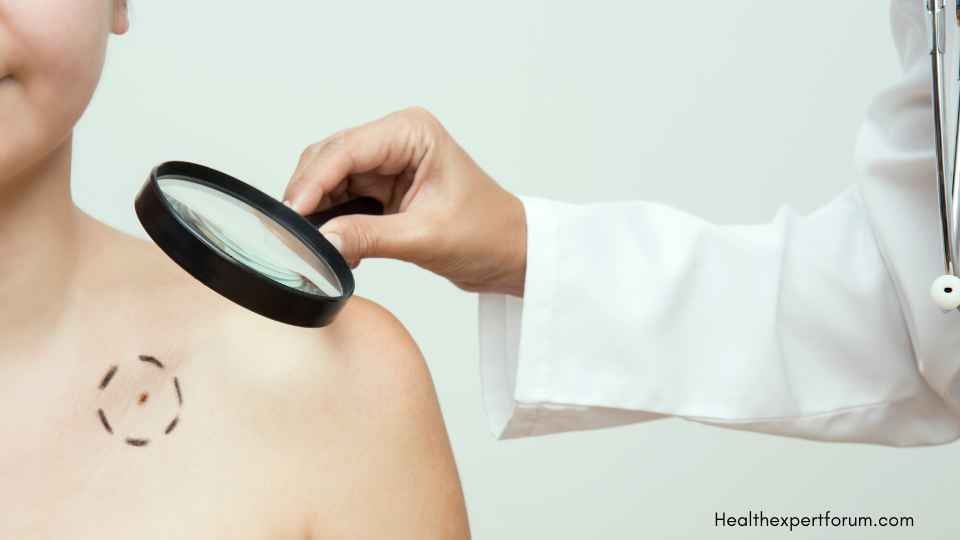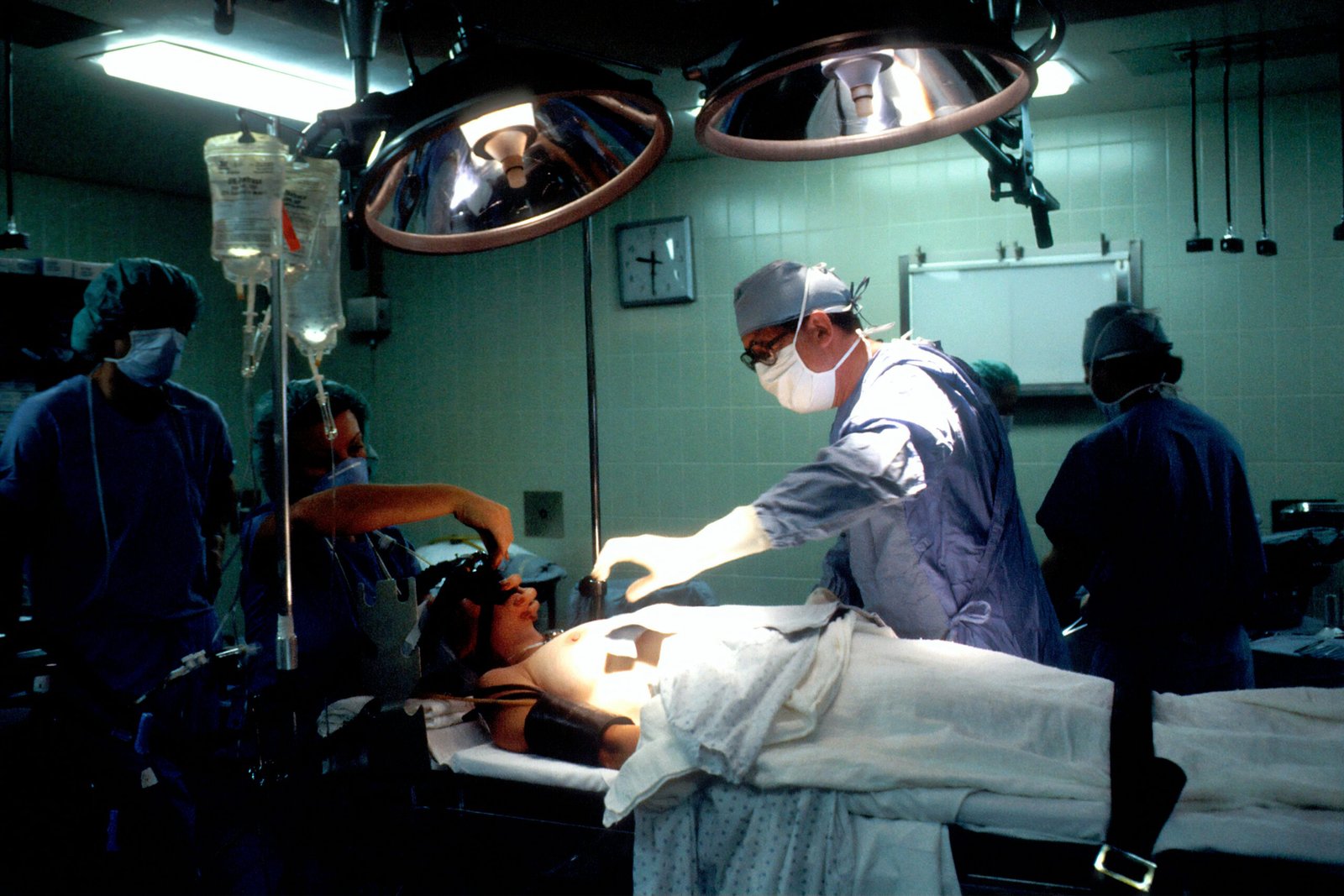Health Expert Forum: Skin Cancer Insights
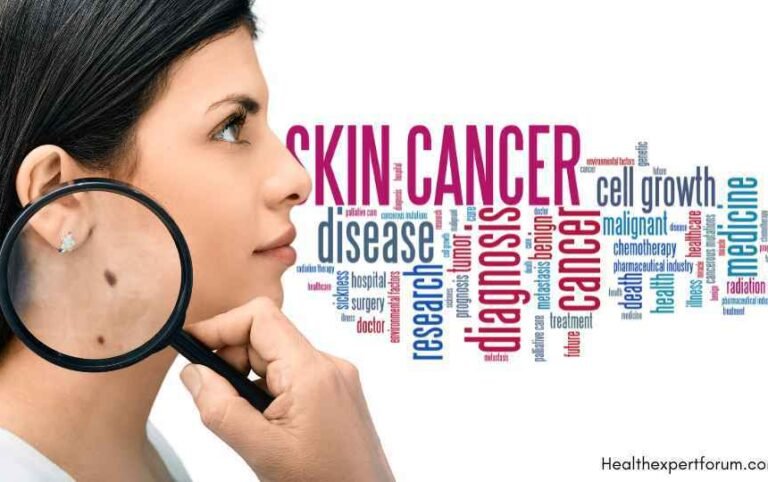
Skin cancer is among the most frequently diagnosed cancers worldwide. It is estimated that approximately 2 to 3 million non-melanoma skin cancers and over 200,000 melanomas occur globally each year. With such high numbers, it is crucial to stay informed about skin cancer prevention, symptoms, and treatments. This article will provide insights from the Health Expert Forum, a platform dedicated to sharing valuable information and advice from leading health experts in the field of skin cancer.
Key Takeaways:
- Skin cancer is a common type of cancer, with millions of cases occurring annually worldwide.
- The Health Expert Forum is a reliable source of information on skin cancer prevention, symptoms, and treatments.
- Early detection and understanding the risk factors are essential in combating skin cancer.
- Preventive measures, such as wearing sunscreen and seeking shade, can significantly reduce the risk of developing skin cancer.
- There are various treatment options available for skin cancer, and the choice depends on the type and stage of the cancer.
Understanding Skin Cancer Symptoms
Skin cancer is a prevalent disease that affects millions of people worldwide. Early detection is crucial for successful treatment and improved outcomes. It is important to be aware of the common symptoms of skin cancer, as it can aid in early identification and prompt medical attention. The key skin cancer symptoms to watch out for are:
- Changes in moles or skin growths: The appearance of new moles or changes in the color, shape, size, or texture of existing moles may indicate skin cancer.
- Itching and bleeding: Persistent itching or bleeding without any apparent cause should not be ignored, as they can be indicators of skin cancer.
- Changes in skin color or texture: Skin that becomes darker, lighter, or develops uneven patches, or exhibits noticeable changes in texture, may be a sign of skin cancer.
If you notice any of these skin cancer symptoms, it is essential to schedule an appointment with a healthcare professional for a proper evaluation. Remember that early detection greatly improves the chances of successful treatment.
Identifying the Causes of Skin Cancer
Understanding the factors that contribute to skin cancer is vital for effective prevention and early detection. By recognizing the various causes of this condition, individuals can take proactive measures to protect themselves. Let’s explore the key skin cancer causes:
1. Excessive Sun Exposure
One of the primary causes of skin cancer is prolonged exposure to harmful UV radiation from the sun. Over time, this radiation damages the DNA in skin cells, increasing the risk of skin cancer development. It is crucial to limit sun exposure, especially during peak hours, and protect the skin with sunscreen and appropriate clothing.
2. Tanning Beds and Indoor Tanning
Tanning beds and indoor tanning equipment emit intense UV radiation, which significantly heightens the risk of skin cancer. Studies have shown that using tanning beds before the age of 35 increases the likelihood of developing skin cancer later in life. It is essential to avoid indoor tanning and opt for safer alternatives for a sun-kissed appearance.
3. Family History and Genetic Factors
Individuals with a family history of skin cancer have an increased susceptibility to the disease. Certain genetic factors and inherited conditions, such as xeroderma pigmentosum, increase the risk as well. Regular skin examinations and monitoring are crucial for those with a family history of skin cancer.
4. Weakened Immune System
A weakened immune system, whether due to certain medical conditions or immunosuppressive medications, can make individuals more vulnerable to skin cancer. In such cases, it is important to prioritize sun protection and undergo regular skin screenings to ensure early detection.
| Summary of Skin Cancer Causes | |
|---|---|
| 1. | Excessive sun exposure |
| 2. | Tanning beds and indoor tanning |
| 3. | Family history and genetic factors |
| 4. | Weakened immune system |
By understanding the causes of skin cancer, individuals can make informed choices to protect their skin and minimize their risk. Remember, prevention and early detection play key roles in maintaining skin health.
Prevention Tips from Health Expert Forum
When it comes to preventing skin cancer, advice from health experts is invaluable. The Health Expert Forum, a dedicated platform for skin cancer insights, offers some important tips to keep in mind. By following these recommendations, you can significantly reduce your risk of developing skin cancer.
Boldly Protect Yourself from the Sun
“Sunscreen is your best friend,” says a renowned dermatologist on the topic of skin cancer. Applying a broad-spectrum sunscreen with an SPF of 30 or higher is essential to shield your skin from harmful ultraviolet (UV) rays. Make sure to reapply it every two hours, especially if you’re swimming or sweating.
Avoid Artificial Tanning
Tanning beds and sunlamps are major contributors to skin cancer. An expert dermatologist from the Health Expert Forum, firmly warns against using them. “Artificial tanning exposes your skin to harmful UV radiation, increasing the risk of skin cancer,” Instead, embrace your natural skin tone.
Regular Skin Check-Ups
According to a leading skin cancer specialist, “Get regular skin examinations by a dermatologist.” Routine check-ups allow professionals to identify any suspicious moles or skin abnormalities early on, increasing the chances of successful treatment.
- Wear sunscreen and reapply it every two hours
- Stay in the shade during peak sun hours
- Avoid artificial tanning
- Get regular skin check-ups from a dermatologist
By following these expert-recommended tips, along with other preventive measures, you can effectively safeguard your skin against the risks of skin cancer.
Types of Treatment for Skin Cancer
When it comes to treating skin cancer, there are several options available depending on the type and stage of the cancer. Treatment plans are carefully determined based on individual cases, ensuring the most effective approach is taken. Let’s explore the different types of treatments for skin cancer:
Surgery
Surgery is a common treatment for skin cancer and involves removing the cancerous growth along with a margin of healthy tissue. The extent of surgery may vary, ranging from simple excisions for early-stage skin cancer to more complex procedures for advanced cases.
Radiation Therapy
Radiation therapy utilizes high-energy rays or particles to destroy cancer cells and shrink tumors. It can be used as the primary treatment for certain types of skin cancer or in combination with other modalities for a more comprehensive approach.
Chemotherapy
Chemotherapy involves the use of drugs to kill cancer cells or prevent their growth. While it is more commonly used for systemic cancers, it may also be recommended for advanced skin cancer that has spread to other parts of the body.
Immunotherapy
Immunotherapy is a groundbreaking treatment that harnesses the power of the immune system to fight cancer. It helps boost the body’s natural defenses and target cancer cells specifically, offering new hope for patients with advanced skin cancer.
Targeted Therapy
Targeted therapy focuses on specific genetic or molecular alterations found in cancer cells. By targeting these specific abnormalities, targeted therapies can block the growth and spread of cancer cells while sparing healthy cells.
Each type of treatment has its benefits and considerations, and the choice of treatment will depend on various factors, including the stage, location, and type of skin cancer. It’s crucial to consult with a healthcare professional to discuss the most appropriate treatment options for your specific case.
Now, let’s take a look at a comprehensive table comparing the different types of treatment for skin cancer:
| Treatment | Description | Pros | Cons |
|---|---|---|---|
| Surgery | Removal of cancerous growth and surrounding tissue | – High success rates for early-stage cancer – Can provide immediate results | – Potential scarring – Surgical risks |
| Radiation Therapy | High-energy rays or particles destroy cancer cells | – Non-invasive – Preserves healthy tissue | – May cause skin irritation – Potential long-term side effects |
| Chemotherapy | Use of drugs to kill cancer cells or prevent their growth | – Effective for advanced or metastatic skin cancer – Can target cancer throughout the body | – May cause side effects – Potential damage to healthy cells |
| Immunotherapy | Boosting the immune system to fight cancer cells | – Can target specific cancer cells – May have long-lasting effects | – Potential side effects – Not effective for all types of skin cancer |
| Targeted Therapy | Targeting specific genetic or molecular abnormalities | – Precise targeting of cancer cells – Potential for personalized treatment | – Can be expensive – May have side effects |
Remember, these are just a few examples of treatment options for skin cancer. New advancements and therapies are continuously being developed, offering more options and hope for those affected by this disease.
Disclaimer: This information is for educational purposes only and should not be taken as medical advice. Always consult with a healthcare professional for personalized treatment recommendations.
Diagnosing Skin Cancer
Early and accurate diagnosis plays a critical role in effectively treating skin cancer. Dermatologists employ various diagnostic methods to identify and confirm the presence of skin cancer. These include:
- Skin exams: Dermatologists carefully examine the skin to identify any abnormal growths or changes in moles. This physical examination allows them to assess the size, shape, color, and texture of the skin.
- Biopsy: In cases where a suspicious growth or mole is detected, a biopsy is performed to obtain a tissue sample. The sample is then sent to a laboratory for analysis, which helps determine if the abnormality is cancerous and identifies the specific type of skin cancer.
- Imaging tests: In some instances, imaging tests such as X-rays, ultrasound, or MRI scans may be recommended. These tests enable dermatologists to examine the underlying structures of the skin and determine the extent of the cancer’s spread.
- Blood tests: While blood tests cannot directly diagnose skin cancer, they can provide additional information about a person’s overall health and help determine if the cancer has spread to other parts of the body.
It is crucial to be proactive about skin cancer diagnosis and seek medical attention if you notice any suspicious changes in your skin. Remember, early detection leads to better treatment outcomes and improved chances of a full recovery.
Understanding Skin Cancer Risk Factors
When it comes to skin cancer, understanding the risk factors is essential for prevention and early detection. By recognizing the factors that contribute to skin cancer development, individuals can take proactive measures to minimize their risk and protect their skin. Here are some key risk factors associated with skin cancer:
- Fair skin: People with fair skin, light-colored hair, and light-colored eyes are more susceptible to skin cancer. The lighter the skin, the less melanin it contains, making it more susceptible to UV damage.
- History of sunburns: Having a history of severe sunburns, especially during childhood, can increase the risk of skin cancer later in life. Sunburns indicate excessive UV radiation exposure and damage to the skin.
- Exposure to certain chemicals: Prolonged exposure to certain chemicals, such as arsenic and coal tar, can increase the risk of developing skin cancer. It is important to be aware of potential occupational and environmental exposures.
- Certain genetic conditions: Certain genetic conditions, such as xeroderma pigmentosum and basal cell nevus syndrome, can predispose individuals to skin cancer. These conditions affect the body’s ability to repair DNA damage caused by UV radiation.
Insights from health expert forum about Awareness of risk factors
By understanding these risk factors, individuals can make informed decisions and adopt preventive measures to reduce their chances of developing skin cancer. It is crucial to protect the skin from harmful UV rays, apply sunscreen regularly, seek shade when the sun is strongest, and undergo regular skin examinations.
“Prevention is key when it comes to skin cancer. By identifying the risk factors and taking preventive measures, individuals can significantly reduce their chances of developing this potentially deadly disease.”
| Risk Factors | Description |
|---|---|
| Fair Skin | Lighter skin with less melanin increases susceptibility to UV damage. |
| History of Sunburns | Past instances of severe sunburns, particularly during childhood, increase the risk of skin cancer. |
| Exposure to Certain Chemicals | Prolonged exposure to chemicals like arsenic and coal tar heightens the risk of skin cancer. |
| Certain Genetic Conditions | Individuals with genetic conditions like xeroderma pigmentosum are more susceptible to skin cancer due to impaired DNA repair mechanisms. |
Increasing Skin Cancer Awareness
Creating awareness about skin cancer is crucial for early detection and prevention. Educational campaigns, community events, and social media platforms play a vital role in spreading knowledge and promoting skin cancer awareness. The Health Expert Forum is actively involved in raising awareness by providing valuable insights and information to the public.
Through educational campaigns, people can learn about the risk factors, symptoms, and prevention methods for skin cancer. Community events such as health fairs, workshops, and seminars offer opportunities for individuals to interact with healthcare professionals, ask questions, and gain a better understanding of the disease. By participating in these events, people can proactively take steps to protect their skin and prevent skin cancer.
Social media platforms have become powerful tools for spreading information and creating awareness about various health issues, including skin cancer. The Health Expert Forum leverages social media channels to share informative posts, infographics, and videos that educate individuals about skin cancer prevention, the importance of regular screenings, and the available treatment options.
By increasing skin cancer awareness, we can empower individuals to take control of their skin health and make informed decisions. Together, we can reduce the prevalence of skin cancer and promote a healthier future.
Exploring Advanced Skin Cancer Treatments
When it comes to advanced stages of skin cancer, innovative treatment options have emerged in recent years. Medical research has made significant advancements, offering hope to those facing more aggressive forms of this disease. Targeted therapy, immunotherapy, and clinical trials are among the cutting-edge treatments being explored for advanced skin cancer patients. These therapies are designed to specifically target cancer cells while minimizing damage to healthy tissue. Let’s take a closer look at each of these advanced treatment approaches:
Targeted Therapy
Targeted therapy is a precision-focused treatment that aims to block specific mutations or proteins responsible for the growth and spread of cancer cells. This approach involves medications that interfere with the signals that promote cancer cell growth, ultimately slowing down or stopping the progression of the disease. Targeted therapy has shown promising results in treating certain types of skin cancer, such as melanoma.
Immunotherapy
Immunotherapy harnesses the power of the body’s immune system to fight cancer cells. It works by stimulating or enhancing the immune response to identify and destroy cancer cells more effectively. This approach has revolutionized cancer treatment, including advanced skin cancer. Immune checkpoint inhibitors, adoptive cell transfer, and cytokines are some of the immunotherapies being explored for skin cancer treatment.
Clinical Trials
Clinical trials play a crucial role in advancing the field of skin cancer treatment. These trials evaluate the safety and effectiveness of new drugs, therapies, or treatment approaches. Participation in clinical trials offers patients access to potentially groundbreaking treatments that are not yet widely available. It also contributes to the collective knowledge and understanding of skin cancer treatment, benefiting future patients.
Medical research in skin cancer treatment has paved the way for advanced therapies that target the specific mechanisms involved in cancer growth and spread. These treatments have the potential to improve outcomes for patients with advanced skin cancer, providing new hope and options for those who are facing challenging circumstances.
While advanced skin cancer treatments are continually evolving, patients need to consult with their healthcare providers to explore the most suitable treatment options based on their specific condition, stage of cancer, overall health, and individual preferences.
Comparative Overview of Advanced Skin Cancer Treatments
| Treatment Approach | Description | Key Benefits |
|---|---|---|
| Targeted Therapy | Medications that specifically target cancer cells by blocking specific mutations or proteins responsible for cancer growth. | – Precise targeting of cancer cells – Minimizes damage to healthy tissue – Potentially effective for specific types of skin cancer |
| Immunotherapy | Stimulates or enhances the body’s immune response to identify and destroy cancer cells more effectively. | – Harnesses the power of the immune system – Shows promise in treating advanced skin cancer – Potential for long-term benefits |
| Clinical Trials | Evaluates new drugs, therapies, or treatment approaches to advance skin cancer treatment. | – Access to cutting-edge treatments – Contributes to medical knowledge – Potential for groundbreaking discoveries |
Coping with Skin Cancer Emotionally
A skin cancer diagnosis can be emotionally challenging, and it’s important to prioritize your mental well-being while undergoing treatment. Coping with the emotional impact of skin cancer requires support, self-care, and a positive mindset.
Seek Emotional Support
Don’t face the emotional challenges alone. Reach out to friends, family, and support groups who can provide a listening ear and understanding. Talking about your feelings and sharing your concerns can help alleviate some of the emotional burden.
Take Care of Yourself
Self-care is crucial during this difficult time. Engage in activities that bring you joy and relaxation, such as hobbies, exercise, or spending time in nature. Prioritize your physical and mental well-being by getting enough sleep, eating nutritious meals, and practicing stress management techniques.
Stay Positive and Focus on Healing
Maintain a positive mindset and believe in your ability to overcome the challenges posed by skin cancer. Surround yourself with positivity and inspirational stories of others who have successfully coped with and conquered skin cancer. Visualize your progress and focus on healing.
“Remember, you are not alone in this journey. There is hope, support, and strength within you to cope with skin cancer emotionally and emerge stronger.”
By prioritizing your emotional well-being, seeking support, practicing self-care, and maintaining a positive mindset, you can navigate the emotional challenges of skin cancer with resilience and strength.
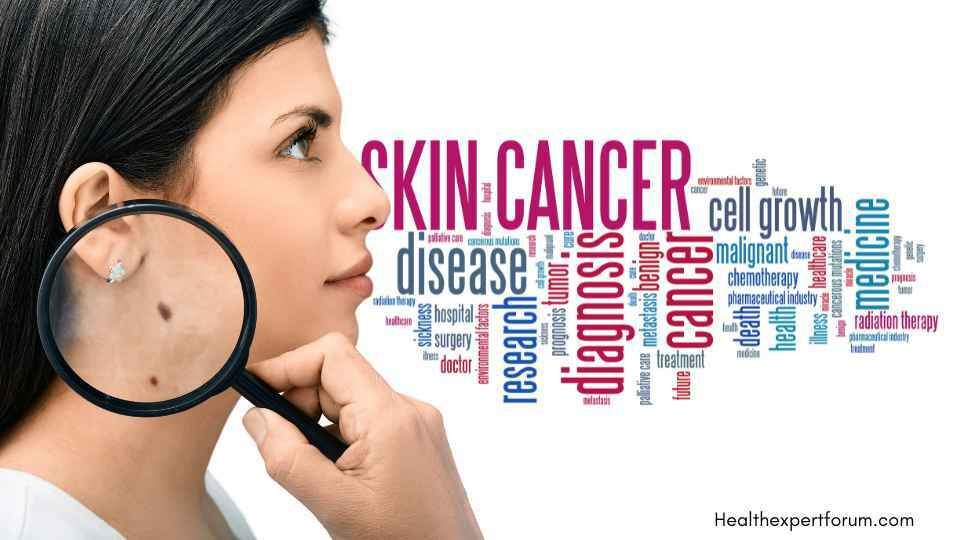
Supportive Resources for Skin Cancer Patients
For individuals diagnosed with skin cancer, it is crucial to have access to supportive resources and organizations that can provide guidance, emotional support, and valuable information. This section highlights some of the key resources available to skin cancer patients, including support groups, counseling services, and online forums like the Health Expert Forum.
Support Groups
Support groups play a vital role in connecting skin cancer patients with others who are going through a similar journey. These groups provide a safe and compassionate environment for individuals to share their experiences, receive emotional support, and learn from others who have navigated similar challenges.
“Being part of a support group has been incredibly empowering for me. It’s made me feel less alone and given me the opportunity to learn from others who have faced skin cancer. We share stories, exchange advice, and offer each other encouragement. It truly makes a difference!” – Skin cancer survivor.
Some reputable support groups for skin cancer patients include:
- The Skin Cancer Foundation support groups
- American Cancer Society support groups
- Online support groups on social media platforms such as Facebook
Counseling Services
Dealing with a skin cancer diagnosis can be emotionally challenging, and professional counseling services can provide invaluable support. Skilled therapists and counselors can help patients navigate their emotions, cope with anxiety or depression, and develop strategies for managing the mental and emotional impact of skin cancer.
It is advisable to seek counseling services from qualified professionals with experience in cancer-related emotional support. Some organizations that offer counseling services specifically for cancer patients include:
- CancerCare
- LiveStrong Foundation
- National Comprehensive Cancer Network (NCCN)
Health Expert Forum
The Health Expert Forum is an online platform where individuals affected by skin cancer can connect with a community of experts and fellow patients. This forum provides a wealth of information on skin cancer prevention, treatments, and coping strategies.
Through the Health Expert Forum’s online discussions, live webinars, and question-and-answer sessions, patients can engage with renowned medical professionals, researchers, and other individuals who are passionate about skin cancer awareness and advocacy.
Join the Health Expert Forum today and benefit from the collective knowledge and support of a dedicated community focused on combating skin cancer.
Conclusion
After delving into the insights shared by the Health Expert Forum, it is evident that skin cancer is a significant concern that requires attention and proactive measures. By understanding the symptoms, causes, and risk factors associated with skin cancer, individuals can take proactive steps to protect their skin and reduce the risk of developing this disease.
Prevention, as emphasized by the experts, plays a crucial role in combating skin cancer. Simple yet effective strategies like wearing sunscreen, seeking shade, and avoiding tanning beds can greatly reduce the risk of developing skin cancer. Similarly, regular skin check-ups and early detection are key to successful treatment and improved outcomes.
It is essential to note that skin cancer treatments have come a long way, offering various options tailored to different stages and types of skin cancer. From surgery to radiation therapy, immunotherapy, and targeted therapy, advancements in medical research have provided patients with more hope and improved treatment outcomes.
By increasing skin cancer awareness, not only among individuals but also within communities, we can create a collective effort to prevent, detect, and treat skin cancer effectively. The Health Expert Forum has been at the forefront of raising awareness and sharing valuable insights, reaffirming the significance of expert advice and support throughout the journey.
FAQ
What are the common symptoms of skin cancer?
The common symptoms of skin cancer include changes in moles or skin growths, itching, bleeding, and changes in skin color or texture.
What are the causes of skin cancer?
Skin cancer can be caused by excessive sun exposure, tanning beds, family history, and a weakened immune system.
What are some skin cancer prevention tips?
Health experts recommend wearing sunscreen, seeking shade, avoiding tanning beds, and getting regular skin check-ups to prevent skin cancer.
What are the different types of treatment for skin cancer?
The types of treatment for skin cancer include surgery, radiation therapy, chemotherapy, immunotherapy, and targeted therapy.
How is skin cancer diagnosed?
Skin cancer is diagnosed through skin exams, biopsies, imaging tests, and blood tests.
What are the risk factors for skin cancer?
Risk factors for skin cancer include fair skin, history of sunburns, exposure to certain chemicals, and certain genetic conditions.
How can we increase skin cancer awareness?
Skin cancer awareness can be increased through educational campaigns, community events, and social media platforms.
What are the advanced treatment options for skin cancer?
Advanced treatment options for skin cancer include targeted therapy, immunotherapy, and participation in clinical trials.
How can individuals cope with the emotional impact of skin cancer?
Coping with the emotional impact of skin cancer can be achieved through seeking emotional support and practicing self-care.
Are there any supportive resources available for skin cancer patients?
Yes, skin cancer patients can access various supportive resources such as support groups, counseling services, and online forums like the Health Expert Forum.
#Knowyourdoctor Dr Khushbu Partani Eye Surgeon in Raipur MBBS, DOMS, Sr. Ophthalmologist / Eye Surgeon Get to know your Eye Surgeon in …
All too often, healthcare focuses solely on curing diseases and prolonging life, sometimes overlooking the importance of providing comfort and support to …
Oncoplasty Surgery for Breast Cancer: Scope and Significance in Chhattisgarh Oncoplasty Surgery for Breast Cancer Breast cancer is a significant health concern …
